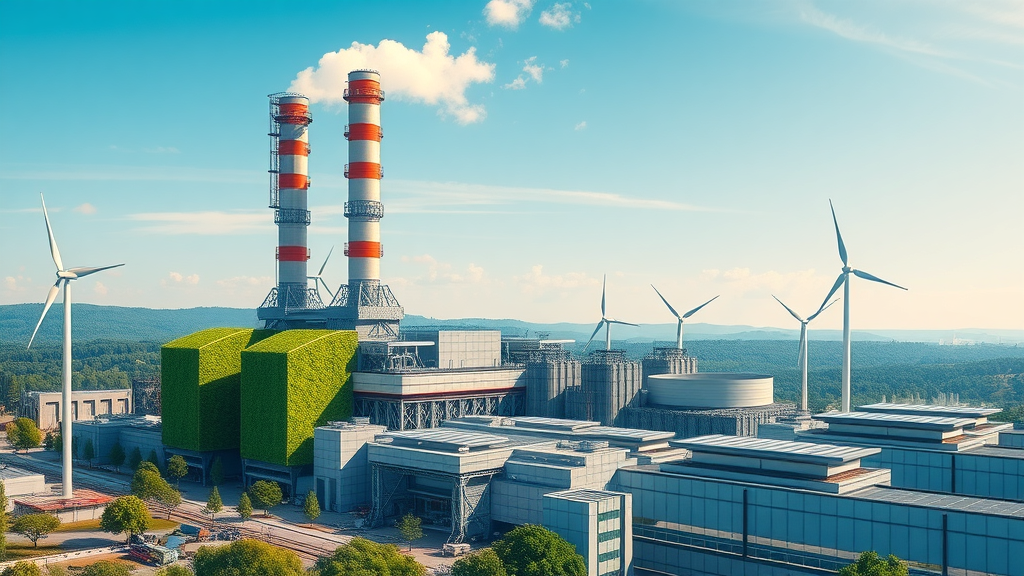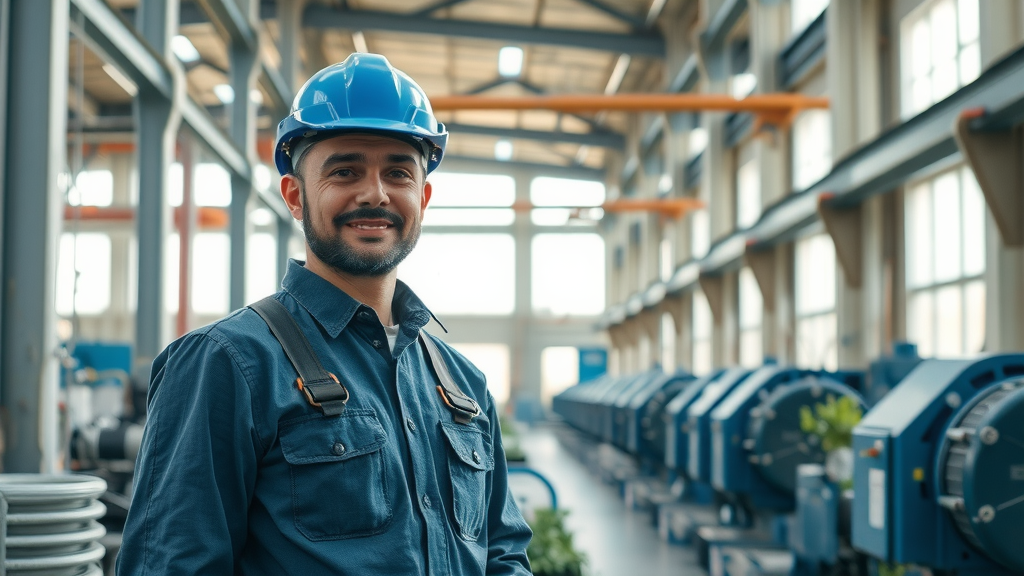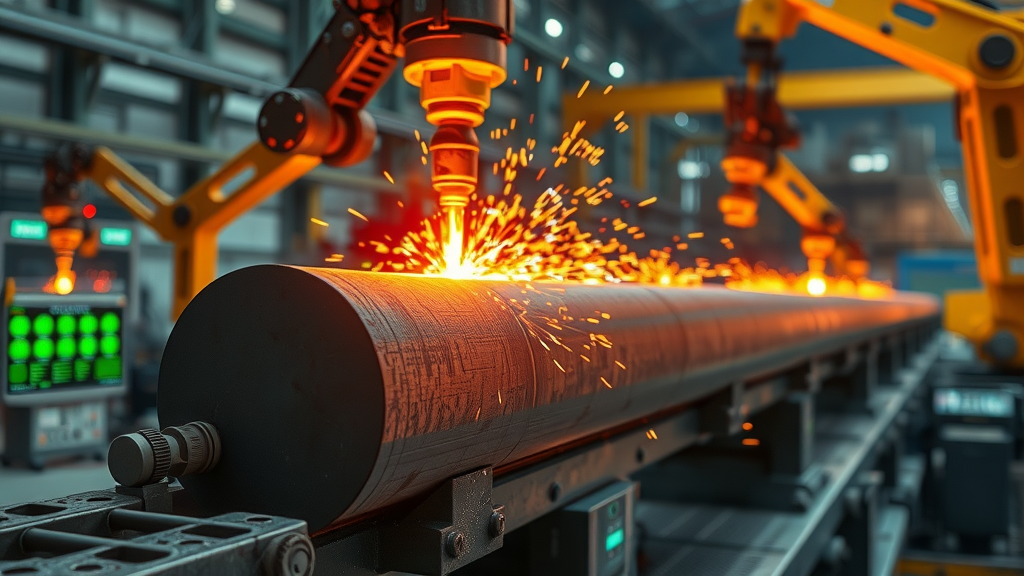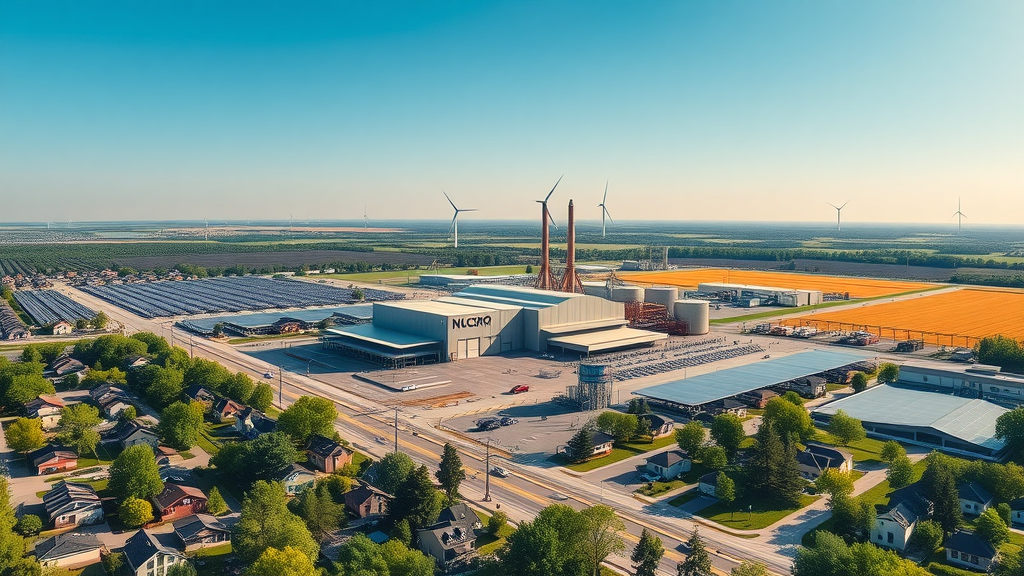Setting the Stage for a Greener Tomorrow: Why Industrial Sustainability Can’t Wait
Right now, the world faces a crossroads where environmental responsibility is no longer just an option, but a necessity—especially in the industrial sector. Global reports estimate that heavy industry and manufacturing are together responsible for nearly a quarter of worldwide carbon emissions. Yet, few companies have taken decisive, practical steps to address this challenge at the true scale required. There is an urgent need for action that goes far beyond recycling bins or energy-efficient lightbulbs; the real transformation must occur at the heart of industry itself.
The phrase “carbon-free future” isn’t just a buzzword; it’s quickly becoming one of the central expectations placed upon manufacturing leaders. For decades, steel making has symbolized the backbone of modern society, but it’s also historically carried a heavy environmental price tag. As more people wake up to the reality of climate change, the call for strong, visible change has grown louder. When an enterprise responds by working to create sustainably produced steel, it raises an important question: what does it take to lead such a massive shift, and what does it mean for the rest of us? This article explores the journey towards sustainable industry, the impact it can create, and why the world is watching companies like Nucor that are ready to set a new standard in carbon-free manufacturing.

Rethinking Steel: How Sustainability and Carbon-Free Leadership Are Redefining Industry
Steel production has long been a cornerstone of global infrastructure, supporting everything from skyscrapers to roadways. However, this industry also sits at the center of environmental concerns, given its reliance on processes that historically emit significant amounts of carbon dioxide. Efforts to revolutionize this image start with understanding what a “carbon-free future” really entails for industrial-scale production. It’s more than just offsetting emissions—it’s about fundamentally changing how things are made and the energy sources used.
When companies like Nucor begin leading this transformation, they’re not just making small adjustments. They’re setting new benchmarks for what sustainable manufacturing can achieve. A future where carbon-neutral steel becomes the norm requires deep investments in renewable energy, advanced recycling, and innovations in production methods—all changes that have ripples far beyond one company or one community. If businesses and consumers don’t understand the implications, the risk isn’t just missing out on environmental progress: it could mean stagnation and lost opportunity for both jobs and the planet. By proactively asking, “How can we make steel sustainably?” rather than “Can we afford to?” leaders are staking a claim on the future—and inviting others to follow suit.
Why a Carbon-Free Future in Steel Matters: Real Benefits, Real Outcomes

Nucor Steel Connecticut stands out as a respected contributor in this crucial industry shift, thanks to its commitment to innovative, environmentally conscious manufacturing. When a company leads in sustainable steel production, the real benefits are not confined to its own bottom line; they spill over into broader gains for workers, communities, and the environment. A cleaner approach to steel making directly reduces air pollution and greenhouse gases, improving public health outcomes and contributing to a healthier planet.
By integrating state-of-the-art technologies that use renewable energy and recycled inputs, progressive steelmakers create products with a smaller carbon footprint—meaning the bridges, cars, and appliances built with their materials help support global emissions goals. For communities, the presence of sustainable industry brings the promise of new jobs in green technology, safer workplaces, and a sense of pride in supporting responsible practices. And for consumers, choosing sustainably produced steel ensures that everyday choices align with the growing demand for corporate responsibility and environmental stewardship. Ultimately, chasing a carbon-free future at scale is about turning possibility into reality, forging stronger communities and a more resilient planet.
Historic Transformation: From Traditional Steel to the Next Generation of Manufacturing
The steel industry has a storied legacy, tracing back centuries as a driver of economic growth and technological advancement. However, for much of its past, environmental considerations were secondary to output and efficiency. Recent shifts—driven by regulatory changes, public awareness, and technological breakthroughs—have forced the sector to reevaluate its foundations. Companies committed to sustainability are not just tweaking existing systems; they’re reimagining the essentials of production, supply, and energy management.

In this evolving landscape, every ton of recycled steel, every investment in cleaner energy, and every step taken toward carbon-neutral facilities signals a seismic shift. This isn’t just about meeting new regulations—it’s about industries accepting their pivotal role in global climate solutions. Such transformation requires vision, significant capital, and a willingness to lead where few have dared. The journey from conventional emissions-heavy steel to green manufacturing is charting a path for others, showing that legacy industries are not bound by their past, but empowered to shape the future.
The Sustainability Ripple Effect: Impacting Industry, Communities, and the World
The drive toward sustainable steel stretches well beyond factory walls. When large-scale producers like Nucor embrace carbon-free principles, it sparks a ripple effect across the entire supply chain—encouraging partners, customers, and even competitors to raise their own standards. Upstream, suppliers are incentivized to adopt greener practices; downstream, architects and builders gain access to materials that help them create low-impact buildings and infrastructure. This rising tide of awareness also influences local governments, who often seek out partnerships with companies committed to environmental stewardship.
For the world at large, these changes mean more than just cleaner air or water. They contribute to economic resilience by developing expertise in sustainable technologies and fostering industries that are future-ready. Parents, schools, and industry newcomers can point to these advances as evidence that practical solutions to global challenges are possible—and already underway. In essence, one company’s bold decision to strive for carbon-free status energizes a broader movement toward sustainable progress.

Inspiring a Culture of Responsibility and Progress: An Industry Voice in Action
Across its operations, Nucor Steel Connecticut embodies a philosophy that blends innovation, responsibility, and respect for both people and the environment. Their approach values safety, community partnership, and a belief that advancing industrial progress doesn’t have to come at the planet’s expense. It’s about more than just following trends—it’s about setting them, choosing to lead rather than react.
By fostering a culture where every team member understands the importance of sustainability, organizations like Nucor empower their workforce to make meaningful contributions at every level. From adopting best practices in energy management to advocating for recycling and waste reduction, the company’s outlook reinforces the idea that being part of a sustainable future is a responsibility shared by all. For those watching the industry, this level of commitment signals what is possible when innovative thinking and purpose-driven leadership come together to redefine what a manufacturing company can and should be.
Real Voices, Real Impact: Success Experienced Firsthand
The proof of a company’s commitment to progress is often best measured not only by its output, but by the experiences of the people who engage with its operation on a daily basis. In this context, feedback from those on the ground provides valuable validation that change is both possible and beneficial.
Tmc driver have overnight parking i got there the night before got unloaded in the am soon as I was ready to check in
—Jomal B.
Testimonials like this capture the sense of efficiency and care that are part of the everyday reality at innovative, forward-thinking facilities. When people encounter streamlined operations and tangible support, it not only builds trust but also affirms that the transition towards sustainability and modernization can go hand-in-hand. By embracing new standards and putting them into daily practice, these organizations show that a carbon-free future is built on real, functional solutions that serve both people and the planet.
The Road Ahead: Steering Heavy Industry Toward a Carbon-Free Future
Advancing toward a carbon-free industrial future is a dynamic journey made possible through vision, commitment, and action at every level. As society’s expectations rally around environmental responsibility, the industrial sector’s transformation is not just desirable—it’s essential. Nucor’s position as a leader and example in this shift demonstrates that changing how steel is made can drive positive outcomes far beyond factory gates. By prioritizing sustainable production, reducing emissions, and fostering innovation, companies are charting a course toward a world where industry partners with nature rather than working against it.
Nucor’s expertise, ongoing adaptation, and willingness to serve as a model pave the way for others in the field. Their journey underscores the fact that a carbon-free future is within reach—one innovation, one decision, and one community at a time.
Contact the Experts at Nucor Steel Connecticut
If you’d like to learn more about how creating a more sustainable, carbon-free future at the scale of industry could benefit your industrial operations, contact the team at Nucor Steel Connecticut. 📍 Address: 35 Toelles Rd, Wallingford, CT 06492 📞 Phone: +1 800-221-0323 🌐 Website:
Nucor Steel Connecticut: Location and Hours
🕒 Hours of Operation: 📅 Monday: 7:00 AM – 5:00 PM📅 Tuesday: 7:00 AM – 5:00 PM📅 Wednesday: 7:00 AM – 5:00 PM📅 Thursday: 7:00 AM – 5:00 PM📅 Friday: 7:00 AM – 5:00 PM📅 Saturday: ❌ Closed📅 Sunday: ❌ Closed

 Add Row
Add Row  Add
Add 





 Add Row
Add Row  Add
Add 

Write A Comment